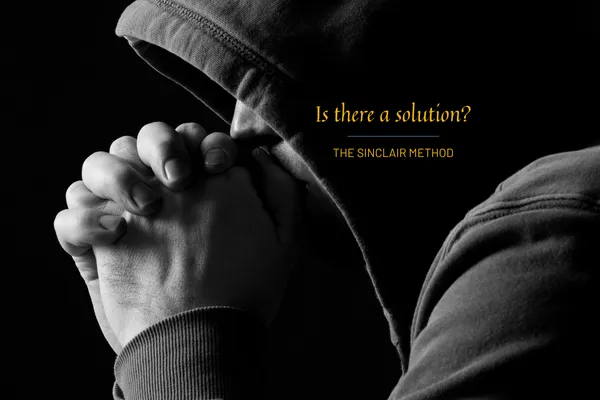
The Sinclair Method vs Abstinence: Which Path to Recovery is Right for You?
Key Takeaways
The Sinclair Method (TSM) offers a science-backed alternative to traditional abstinence-based recovery.
TSM uses targeted medication to reduce alcohol cravings over time, supporting moderation and long-term change.
Abstinence remains a strong and structured approach, but it may not be suitable for everyone.
Choosing between the two depends on your goals, lifestyle, and previous recovery experiences.
Both methods aim for freedom from alcohol dependency — but the journey looks different.
Understanding the Two Approaches
When we talk about recovery from alcohol use disorder (AUD), most people still think of abstinence — the complete and permanent cessation of drinking. It's the traditional approach taken by many rehab centres and support groups like Alcoholics Anonymous.
But what if there was another way?
The Sinclair Method (TSM) challenges this notion by offering a treatment that doesn’t begin with quitting alcohol cold turkey. Instead, it focuses on gradually retraining the brain’s reward system using a medication called Naltrexone.
Let’s take a closer look at both.
What Is the Sinclair Method?
At the core of TSM is a simple principle: extinction of the addiction. By taking Naltrexone one hour before drinking, you block the pleasurable effects of alcohol. Over time, the brain stops associating alcohol with reward, and cravings decrease — sometimes even disappear.
Key features of the Sinclair Method:
Medication-led: Naltrexone is taken before drinking to block the release of endorphins.
No forced abstinence: You continue to drink during treatment, but gradually less over time.
Evidence-based: Proven to reduce cravings and alcohol consumption through a process called pharmacological extinction.
Private and flexible: You can integrate it into everyday life without needing to attend group therapy or disclose your journey to others.
Focus on sustainability: Encourages long-term behavioural change, rather than relying solely on willpower.
If you're interested in how this works in practice, explore how we support clients at Rethink Drink.
What About Abstinence-Based Recovery?
Abstinence-based recovery is a more traditional approach, often promoted through 12-step programmes and residential rehab facilities. For many, this method provides a clear boundary and a sense of structure.
Key characteristics of abstinence-based recovery:
Immediate and total sobriety: The goal is zero alcohol consumption, from day one.
Structured programmes: Typically includes therapy, peer support groups, and accountability systems.
Community-led: Encourages connection with others through regular group meetings and shared experiences.
Focus on spiritual or moral growth: Especially in 12-step settings, where belief in a higher power is common.
Relapse-sensitive: A single drink can be seen as a failure, which may deter some individuals or lead to guilt cycles.
While this method works well for many, others may find the rigidity and "all-or-nothing" mindset difficult to maintain.
Comparing the Sinclair Method and Abstinence
Let’s summarise the key differences in approach and mindset between the two:
The Sinclair Method:
Uses medication to reduce cravings before drinking
Does not require immediate sobriety
Encourages gradual reduction in alcohol intake
Supports drinking within treatment, without guilt or shame
Can be done privately, with one-to-one support or self-guided tools
Abstinence-Based Recovery:
Requires complete and immediate sobriety
Often involves regular group meetings or inpatient care
Focuses heavily on avoiding triggers and environments with alcohol
May use peer accountability as a cornerstone of success
Can be beneficial for those with severe dependence or health risks
Both methods aim for the same outcome — freedom from alcohol’s grip — but the route and tools used are very different.
Which Path Is Right for You?
The best approach is the one that suits you — your lifestyle, your health, and your relationship with alcohol.
The Sinclair Method may be a better fit if:
You've previously tried abstinence and relapsed.
You're seeking a science-backed solution without stigma.
You want to regain control without quitting overnight.
You’re interested in moderation rather than strict sobriety.
Abstinence-based recovery may suit you if:
You have physical or psychological conditions that make alcohol unsafe.
You're looking for a clear, structured, and sober lifestyle.
You thrive in peer-supported, group-based programmes.
You've found success in abstinence before and want to recommit.
At Rethink Drink, we believe recovery should never be one-size-fits-all. That’s why we offer compassionate support, helping people explore alternatives like TSM — because lasting change begins with choice.
Ready to Explore Your Options?
If you're feeling stuck or curious about whether TSM or abstinence is right for you, we’d love to chat. Our approach is non-judgemental, empowering, and tailored to you.
Book your free screening call today to speak confidentially with one of our experienced coaches. Let’s find your path together.


